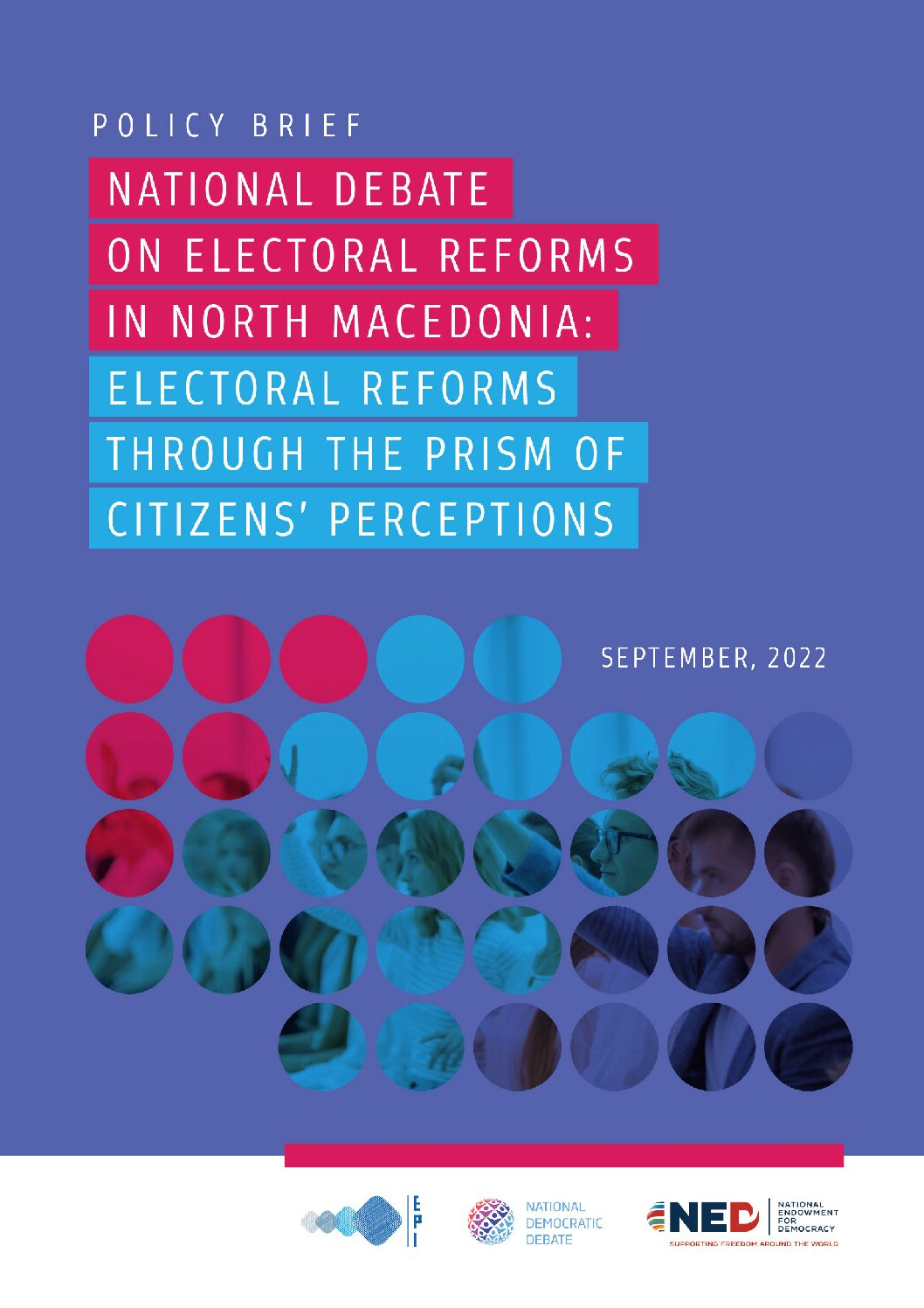Free and fair elections are the cornerstone of any democratic society, where the interests of the citizens are rightfully represented and accounted for. North Macedonia has underwent many cycles of electoral reforms since its independence, yet more often than not they are conducted in light of upcoming elections, limiting the space and time for an inclusive, transparent public debate. Aiming to bridge the gap of fragmented and non-inclusive dialogue on electoral reforms, the European Policy Institute conducted the National Debate on Electoral Reforms in May and June 2022, to shed light on the possible outcomes of the changes in the electoral model that have been discussed by the political parties and policy actors in the country.
The National Debate was organized following the method of Deliberative Polling, developed at the Center for Deliberative Democracy at Stanford University. Deliberative Polling is a unique form of political consultation that combines the techniques of surveying and public discussion, where participants are polled on a targeted issue(s) before and after engaging in dialogue with experts and political figures. The changes in opinion before and after the deliberation reflect the citizens’ preferences if they would have the chance to become more informed and more engaged by the issue(s). The main goal of the National Debate was to increase the involvement of the citizens in the upcoming reform of the electoral system, through inclusive, objective dialogue with relevant experts and decision-makers.
The initial survey was conducted in May and included both knowledge and opinion/attitude questions. Prior to the event, participants were provided with balanced briefing materials, reviewed by relevant experts to ensure unbiased and objective information, which served as the basis for the discussions with the experts and political figures. Upon the event, the participants were given the same survey, to measure changes in their perceptions on the topics discussed. The results of both surveys were analyzed using ANOVA test of variance, to check for any statistically significant differences in the citizens’ opinions pre and post the deliberative event.
While there are many aspects of electoral systems and different election models across the world, due to time constraints, the National Debate on Electoral Reforms focused on parliamentary elections, covering four topics: (1) the number of electoral districts, (2) the types of lists, (3) out-of-country voting and (4) registration of voters. The first topic covered two possible reform scenarios – the entire territory of the country is one electoral district or status quo – the country remains divided into six electoral districts. The second topic covered open or closed lists for candidates for Members of Parliament (MPs). The third topic covered three scenarios: status quo – non-residents votes and elect up to three MPs, non-residents votes and elect one MP, and non-residents do not vote at all. Finally, the last topic covered two scenarios: active and passive registration of voters.

